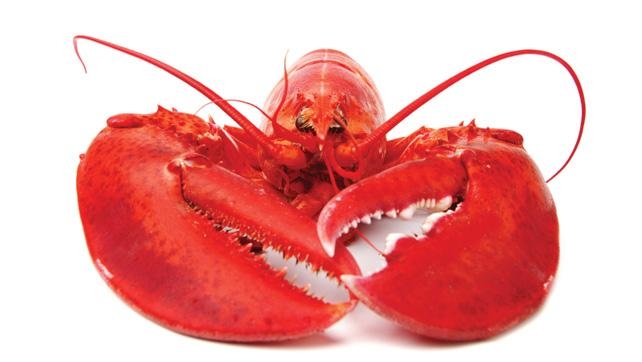The theme of October 2017 prose of the month is "Food & Costume."
This story has been excerpted from a longer piece by the same name.
The Burgett Hotel’s lobby was a grand, high-ceilinged room with marble floors and naked angels in the ceiling. Healthy standing plants and buttoned green velvet couches lined the walls. The staff, all men with cat licked hair, waited along the walls, satin hands behind their backs. A young harpist in a glittering sheath played “Every Breath You Take” on a tucked away platform. Rose paused for a moment next to the entrance before walking through. It was an older crowd, for sure. A sea of glossy heads populating the tables at the entrance café. Smooth skin in soft sweaters, unscuffed shoes and tortoise shell glasses on each side of candelabras. The smell of gardenia powder and steak. No one spoke above a whisper.
Rose planned to beeline to the elevator, her head down, as she held the sides of her skirt, thinking that might dampen the conspicuousness. Her dress’s corset amplified her bust, flattened out the front of the rich black velvet skirt, merely the centerpiece to a larger operation: a six-layered petticoat, a mountainous largesse of the crinoline, an itchy bouquet of sleeves that ballooned at the shoulders, and, not to mention, a doily-pin headpiece.
When Rose stepped forward, a white-blonde haired man in a sailor’s blazer, standing with his wife and an extensive leather luggage collection, looked up and said loudly, “What the hell?” She thought there was hush in the crowd. She was beginning to get dizzy. Was it possible, she wondered, that people were not thinking how strange she looked, but instead how magnificent? Even over the static of her gown in friction with the carpet and leveling a vase of pussy willows. She heard a woman’s voice chuckle out in superior tone,“Good Christ, Harvey, it’s cos-play.”
Was it possible, she wondered, that people were not thinking how strange she looked, but instead how magnificent?
Rose reminded herself of the twelve hundred dollars and the possibility for tip. It would pay her rent for the month and then some. In just a few hours. We will not touch or engage in any physical / sexual contact, Collagio’s email said after they connected on Seeking Arrangements. He just wanted her to dress up in a Victorian ballgown and eat with him. Talk to him “in character.”
She had promised herself she’d keep her apartment come hell or high water. Her wages as a hair washer were barely, barely keeping her fed and in transit. She reminded herself that she needed this. She didn’t have any other options.
She prayed it would just be her on the elevator but on the third floor two men walked in. She tried to catch a glance but was unsuccessful. Both had exceptionally precise haircuts. Neither had any interest in Rose or her dress. Was this a New York thing? Rose wondered. Walking about in period clothes?
Rose admitted that part of her wished they would ogle her, giggle, stare a little, give her some kind of encouragement. She thought of the time, as a child, she lifted her skirt and pulled back the crotch of her Chip and Dale underwear, revealing her vagina lips to her little church friend, Owen. She stretched them out so the dark grapefruit interior, the ridged sail of her clit, gleamed proudly like it was saying “Hi!” She expected him to be as thrilled to see it as he was to show it. Instead, he cried.
When the elevator arrived at the suite, opening its golden doors to the pearl expanse of what appeared to be a massive apartment, Rose’s hand hovered with the key that could have sent her right back down to the lobby and out into the streets, all the way back home. Her heart was in her mouth, pounding. She thought of her mom and that fucking Ron guy, how they were probably warming up some yellow rice and watching CSI Miami. How her mother would laugh if she knew where she was.
✕ ✕ ✕ ✕
When she had been sitting alone on a bursting pink tufted couch in the suite’s sitting room for almost fifteen minutes, Rose finally gave in and reached her hand into the crystal bowl of fresh figs sitting on the mahogany side table and bit one in half. The flesh of it tugged stubbornly before the jelly interior and hard little seeds burst and crunched into her molars.
The man who had greeted her and instructed her to wait was nowhere in sight. He had introduced himself as Rusty. She wondered if Rusty might be reporting to Collagio about her, warning him, “She’s a lunker, sir.”
Rose stared down at the little lines of red her shoes were etching into her feet. An antique Turkish rug of cream and blue sprawled out before her, four worn horses jumping towards a centered turquoise sun. It was bleached, likely due to the natural light from the two tall walls of windows. How do they keep such a rug clean? Rose wondered.
“Madame?” She heard Rusty’s voice and shot to attention but couldn’t see where it was coming from. Though she noticed the wall opposite her had opened, right where the portrait of a young boy in blue pantaloons with an Irish setter had hung. Rose rose and swallowed her anxious laughter. It was warm. A hot, single stream of sweat ran from her hairline to asscrack. She smelled peanut butter, the scent of her own body odor.
It was too dark to see the dining room’s outermost perimeter, but Rose saw the lit, silver-dressed dining table for two covered in linen that special shade of old blood. The table at which Collagio now sat and ate. Had he been having a first course while she waited in the next room?
Collagio saw Rose and stood, placing his napkin to the side of a shallow bowl of mint green soup as crumbles of bread tumbled down into his suit coat. She observed immediately how clumsily he moved.
“Mr…Collagio,” she surprised herself. Her voice came out soft and breathy.
“Madame Karen.” She had given him a fake name. Collagio gave her a very slight bow gesturing for her to sit. His arms gestured like a Muppet. Like someone else was in control. Perhaps it was Rusty, she thought, who now stood unblinking next to the table, his face lit like a crypt keeper by the chandelier made of actual candles.
“You look…” Collagio’s voice was feathered and painfully gentle. He quivered and could not, for the life of him, finish his sentence.
“Thanks.” Rose lowered herself into an awkward, slow curtsy, shuffled her dress to sit, and took a long, long sip from her water goblet.
“Would you like a beverage, Madame Karen? Some wine?”
Rose cleared her throat. She tried to keep herself from squinting as though she were trying to decipher an abstract painting or one of those Magic Eye posters. While he was a large, tall man, like she imagined, he hunched his shoulders down gently and to the right just so, as though to intentionally make himself appear smaller. He wore a wrinkled blazer with a T-shirt of a Degas ballerina underneath, light wash jeans, and grey, brand new New Balance sneakers. She couldn’t place his age. His skin was soft and poreless but it drooped over his bones like a longtime acquaintance of gravity. His wet acorn eyes blinked, glossy and rapid, behind spectacles with gargantuan rims. His thinning brown hair gathered in the back in a low ponytail, crisp strands escaping behind his ears. The aspiring hair stylist inside her would have liked to deep condition and chop it. He fidgeted like a kid.
She couldn’t place his age. His skin was soft and poreless but it drooped over his bones like a longtime acquaintance of gravity.
“Some champagne would be gorgeous — much thanks.” Much thanks? What she actually wanted was a strong Ike Turner, what her mother drank. She yearned for the tang and taste of something familiar. She watched as Collagio nodded to Rusty, who walked backwards towards what Rose could only imagine, or hope, was the kitchen. And then they were alone together. In silence. Collagio cleared phlegm from his throat and she gripped the sides of her chair, feeling waves of nausea and the forshadowing of a nervous shit.
“The food here is exquisite, Miss Karen, and please, if you want something that isn’t on the menu, they will make it for you.”
“How generous.”
“Have you been enjoying your evening so far?”
“A beautiful evening.” Although she was intending to stay in character, Rose became hyper with questions. She wanted to know how he grew up, if he had children, hobbies, lovers. And what was it about sitting opposite her while she was dressed like this that excited him so? She wondered if it was actually the costume and the dirty talk, or simply the fact that he got a woman, a stranger, to do these things, to make herself up in such a laborious manner for him. Did those other women need to do this like Rose did? Or did they want to?
“I’m glad it’s been to your liking.”
“Indeed, yes, indeed it has been.”
“Have you stayed at The Burgett, before?”
“I can’t say that I’ve had the pleasure.”
“It’s one of the finest.”
Rose tried to gauge, looking at him, if the way he spoke was at all suggestive, not knowing at what point things might veer sexy. Rose pictured Collagio hovering above her on an expansive four poster. Busting her out of her corset, eating her breasts like he was diving face first into a layered cake, tossing her petticoats towards her head in fevered waves. Could she enjoy it?
Collagio’s head was still hung in a bow, but his eyebrows tried desperately to drag his gaze up to meet her eyes. He took a sip of his wine and somehow sent a butter knife spinning to the floor in the process. His other hand, peppered with white and tan speckles of pigmentation, lay stretched and flat on the linen. It really was a big hand, Rose noticed. He could likely wrap his fingers entirely around her neck. His middle finger would touch the crown of her head if he palmed her face.
✕ ✕ ✕ ✕
While Rose declined a meal, considering her corset, Collagio’s salmon came in a tower hovering above a vegetable collection and a crayon yellow glaze Rose couldn’t discern. She watched his mannerisms change as he ate. Attempts at decorum or reserve fled the moment before a bite, when Collagio opened his mouth in a way that made Rose think of a goblin. Smacking as he chewed, his lips were as wet as if he’d put on deep red gloss. When he took a sip of his drink, she noticed he left a milky thumbprint of perspiration on the glass when he set it back down.
“Would you like a taste, Karen?” Rose adjusted the sides of her skirt, which were working their way up on either side like two smiling mushrooms.
“Oh, no, thank you. Thanks, no.”
“Another drink?”
“Absolutely.”
Rusty materialized, placing another flute next to her. She wondered what the relationship between the two of them was like when no one else was around. She had a rather obtrusive vision of Rusty giving Collagio a gentle sponge bath, taking a sopping washcloth to some bacne.
“Can I ask you what you do, Mr. Collagio?”
“Just Collagio.”
“Collagio.”
“I’m a publisher of books.”
“Anything I’ve heard of?”
“I would think so.”
“…so you like to read?”
“I do. Do you?” He looked up at her, finally full on. His eyes gave her a dull, dark stare. Her show of curiosity had shifted his discomfort to annoyance. Rose dug her fingernails into her palm. She guessed that he wouldn’t be interested in her extensive knowledge of graphic novels or Science Fiction. She exhaled slowly. She turned her chin slightly up at him. She looked at him with a purposeful blink, hoping it came across as flirting.
“I’m in the middle of Middlemarch.”
“One of my favorites.”
“One of the greatest novels of this or any age.” So people say, thought Rose. He smiled in agreement with them.
“You must spend hours reading in your parlour.”
“When I’m not doing needlepoint or singing for father, yes.”
“You’re an artist, then.” He took the remaining bite of his salmon, and Rose watched a piece of fatty silver skin hang off his fork. “I would very much like to eat at your house.”
“Oh, I wouldn’t go so far — “
“No need to be humble around me, my lady.”
“I suppose I have…artistic tendencies.” Rose batted her lashes once again. Realizing that she wouldn’t have to sidestep questions about herself, that he didn’t care about her family, her search for work, the trashy town she hailed from, how she quit school three credits shy. It began to relax her. She thought about how only hours before she was in her apartment, in dirty jeans, dissecting a Hot Pocket with a knife and fork while watching old House of Style episodes on YouTube. How she smoked six menthols that day and had a can of Coke as the rented gown hung on the back of her door in a plastic dry cleaning bag like a prom dress. But for all Collagio knew, she was a woman born rich who wore gowns and had servants and a stable of horses. Someone who read the Romantics.
“And your old father, do you cook for him?”
“I can barely cream my tea, good sir. We have servants.”
“What does the cook make for you?”
“Lots of meat. Big cakes.” Rusty showed up just then with a crystal ramekin of vanilla pudding, a single glazed raspberry at it’s center. Rose imagined the inside of his mouth, the alchemy of taste those foods must be making.
Rose imagined the inside of his mouth, the alchemy of taste those foods must be making.
“Scrumptious.”
“I’ll call on you as a guest.”
Collagio cracked his neck with a quick snap and filled his wine glass all the way to the top. We’re certainly getting braver, Rose thought.
“I have one stipulation to my accepting.”
“Of course.”
“Make sure your father is gone.” He swallowed a heap of his pudding and laughed with a feral look, white cream at the edges of his mouth, and it prompted Rose to laugh, too. Her legs began to tingle slightly. They felt numb and ashamed. The way she did when she felt turned on by a scene in a film that wasn’t sexual, or when she was touched on her neck, even by an animal or a strange woman on the subway, unexpectedly, accidentally, and became aroused on impact.
“Now tell me how you put on that dress you’re wearing.”
“Oh, this?”
“Yes, that.”
“Well, first I put on the white stockings, all the way up to my thighs.”
“And however did you get that waist so tight? All by yourself?”
“You’re making me blush, sir.” Rose’s heart started to beat faster. She enjoyed watching him as he became aroused. The look on his face! His eyebrows knit together, the flush of heat and sprinkling of sweat across his forehead. She sucked in her bottom lip and bit down hard.
“My dresser helps me tie up sir. She’s very, very good at it.”
“And does she ever accidentally… touch your breasts, Miss Karen?”
“She does touch my breasts, sir.” Rose cleared her throat. “But I don’t think it’s by accident.”
“Why is that?”
“Because she massages them with ylang ylang oil.”
Rose watched Collagio’s chest grow. He let out a strong breath and put his spoon down on the table. She couldn’t tell if the pleased sound that accompanied this exhalation was for his dessert or for her. Collagio ran his palms over the greased hair on his scalp, then dropped his arms to his sides and closed his eyes. He fell silent. For a brief moment, Rose worried he was having a stroke. She thought of Owen again, as Collagio sat there, unspeaking, whimpering slightly, looking for his words.
She thought of her father, too. When the two of them used to play in the yard together before he died. How he picked her up above his head one night and kissed her crotch, twice, three times, once with a flick of his tongue, over her underwear of course, but with the sound of lip smacks, like he did when he kissed her forehead. Something Rose knew, as she got older, was inappropriate, but something she did, if she were honest, remember with fondness.
“You might have guessed I’m an unusual man, Miss Karen.”
“No…”
“I don’t have much family left.” Rose’s heart started beating hard, wondering where this was going. His voice had changed suddenly.
“No cousins or anything?”
“Just Rusty, my assistant Genevieve. And my—”
“I’m sure she’s great. Rusty seems great.”
“I spend a great deal of my time alone.”
“I get that, sir.”
“You do?”
“Yes. I do, too.”
He smiled at her. “I have something else to ask of you, Karen.”
“Ok.”
“When we are finished with our wine, and after you have a bowl of this incredible pudding, I would like to take you upstairs.”
✕ ✕ ✕ ✕
He held the door open for her when they arrived at the suite’s bedroom, bowing before she crossed the threshold. He poured her a drink before he sat down in a much oversized white chair, one that dwarfed his giant frame.
“Take a moment for yourself, please, Karen,” he said, and she did, going into the bathroom, reapplying her lips, removing her headpiece, letting her hair down. She wondered if he would mind her hairless crotch, if he was the kind that wanted a wild, plentiful bush like that famous old painting of a French vagina.
Where the mirrored walls met in the corner of the sink, Rose could see the familiar effect of her image repeating, this version of herself getting smaller and becoming itself forever. She swallowed and her throat was dry, unlike her hands. She had made this choice. Every step of the way. She had chosen every moment leading up to this one, leading her to exactly where she was. She knew the others never did this. Which must have meant there was something particular about her, that he wanted to try this, that he wanted her differently. She told herself she was doing this poor man a service.
“Do you mind if we put on some music, sir?” Rose asked him when she came back out.
“Of course, Karen.”
“Play ‘Body’s In Trouble,’ ok?” From an artist her mother turned her on to. By the time the song was over, she would forget what she was doing.
“Now. Slowly, very slowly, I would like it if you could,” Collagio hesitated. “If you could undress yourself, Karen. You can lift the layers of those skirts and show me what you have underneath there.” His voice seemed suddenly drier, deeper. Rose flinched and closed her eyes, turning her back to him.
“First – tell me what I’m doing to you, Karen,” Collagio said, as the song began. Rose stretched her neck to each side and rolled it. She imagined the scenario for a moment before she told him.
He would grab her from behind and eat her neck. He would lift her body with one hand like a shot put and toss her across the room onto the bed, knocking over figs, the room service cart, the glass bottles of Pepsi and sparkling water on the nightstand. Maybe she would hit the headboard and her forehead would start ever so slightly to bleed. Neither would care.
He would lift her body with one hand like a shot put and toss her across the room onto the bed, knocking over figs, the room service cart, the glass bottles of Pepsi and sparkling water on the nightstand.
He would pull her thighs and her ass and her hip carriage to his lips and nibble it, the beat of his breath on her clitiros and the tiny pinches of his teeth on her vulva lips. His fingers going in to spread inside her like he was holding a ripe orange, stretching her wall muscles until they ached.
“Oh, sir, you’re scratching those long…”
Before Rose could finish her sentence, she heard him yell out. Suddenly paralyzed, she could feel the heat of her heartbeat in the cartilage of her ears. Anything erotic she felt evaporated in a cold snap and turned to panic. She turned around and the sound continued, the heaving, the guttural moans, sniffles. He was crying.
“Sir?”
“She’s dying.”
“I’m sorry — what?”
“My wife is dying, Karen.”
“Oh, god.”
“She’ll be completely gone in the coming weeks.”
Rose stayed perfectly still. She sat in the chair, facing him. Collagio had collapsed into himself, curled like he’d been punched.
“I wanted to see a woman’s body in the flesh, in perfect health,” he gasped for breath. “But I can’t.” Rose paused.
“If it makes you feel any better, I’m not that healthy. I’m a smoker.” Thank god, he let out the small breath of a laugh from his nose.
“Oh, Karen.”
“My name is actually Rose.”
“A beautiful name.”
Rose was unsure if she should touch him, find a hanky. She wanted somehow to make him stop crying, to make him feel better than he did.
“How about we do something else, then sir? ”
“I can’t Rose…like what?”
“How about I wash your hair?” She waited for an answer. “I’m a professional.”
✕ ✕ ✕ ✕
In the bathroom, Rose turned on the faucet and made the water the perfect temperature. She pulled a bathroom chair over to the deep thumbed bronze sink and covered it in towels. She removed the tiny black elastic from his thin ponytail, and attempted to give a little life to the strands. Collagio closed his eyes, relaxed, but throughout her cleansing, he continued to weep. Rose gave him a long and careful shampoo. When she finished, she took a warm washcloth to his face.
“This feels so nice, Rose,” he said.
She told him to towel off in the room, that she would rinse out the sink and then brush and cut his hair. But before she was done preparing, she heard a quiet click of the door, and knew he had left without saying goodbye.
When she came back into the empty room, Rose looked out at the city through the split in the linen curtains. The buildings were lit, and she noticed, after being in New York for only a few weeks, that it was never really dark enough to sleep well. Just like everyone said. Rose imagined kicking off her mint kitten heel through the window and hopping from roof to roof on those lit up buildings, like a raptor or a frog. All the people in the streets or in the windows of offices or penthouses would watch with their mouths catching flies, screaming, pointing and afraid of her, or happy for her, or both. Who is that girl? They would ask. Where is she going?
 Annakeara is a writer who lives in Brooklyn. She is currently getting her MFA in Fiction from The New School.
Annakeara is a writer who lives in Brooklyn. She is currently getting her MFA in Fiction from The New School.
Featured image via Pxhere.



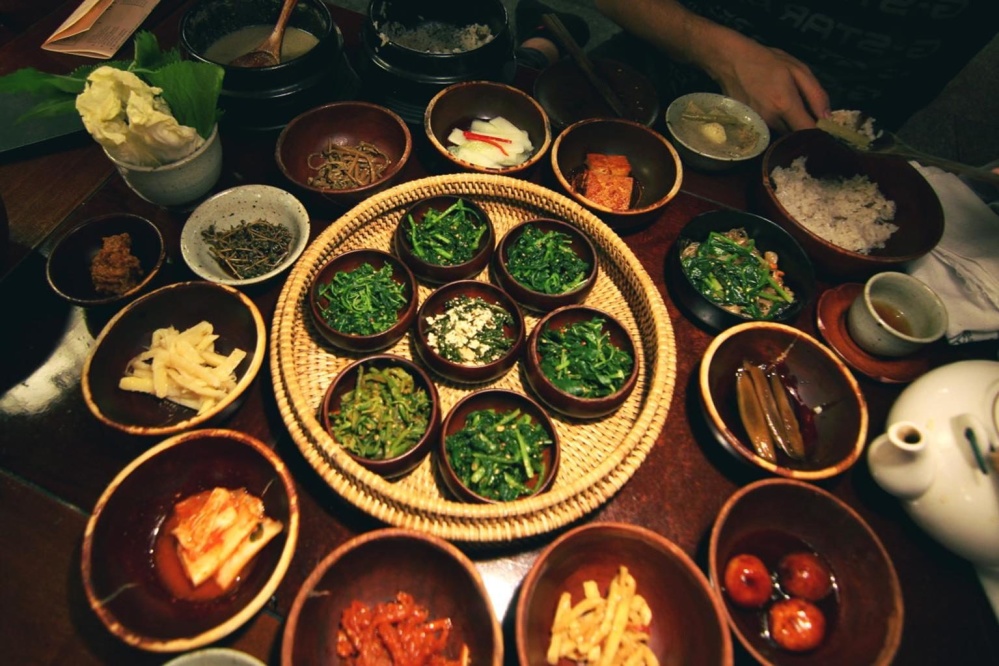
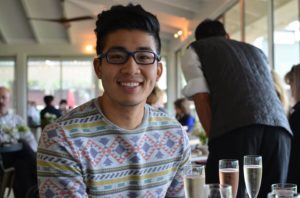
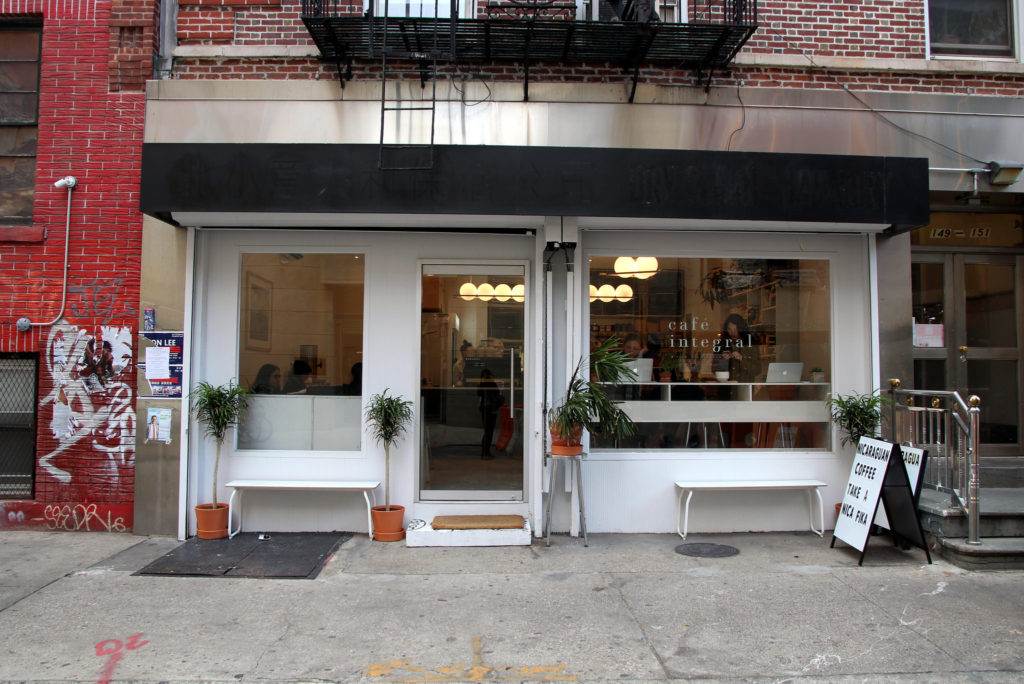
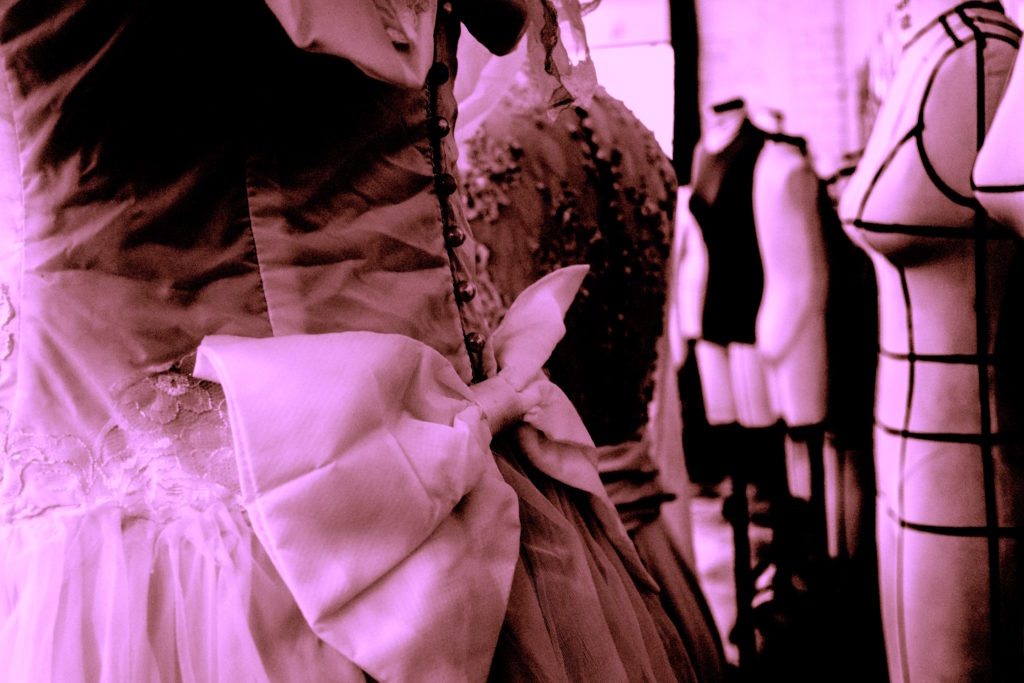
 Annakeara is a writer who lives in Brooklyn. She is currently getting her MFA in Fiction from The New School.
Annakeara is a writer who lives in Brooklyn. She is currently getting her MFA in Fiction from The New School.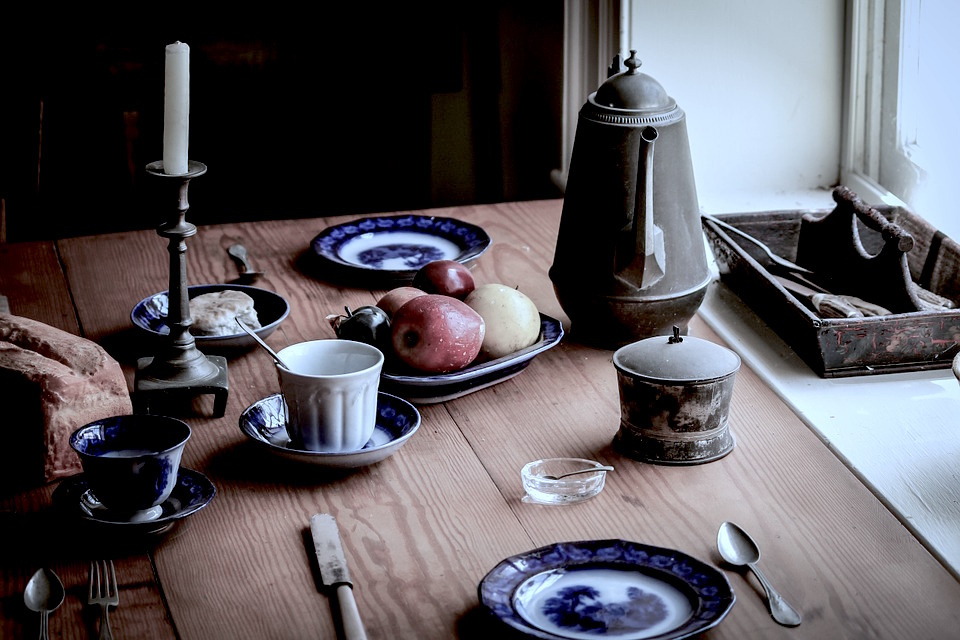
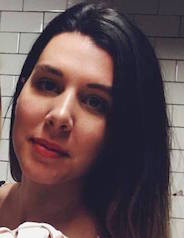 Wynne Kontos is a licensed masters social worker and editorial assistant at Teachers and Writers’ Magazine, currently receiving her MFA at the New School. Her work is featured in the anthology, Love Sick: Teens Reflect On Growing Up with a Parent Who Has Cancer and Moonlit Wing, with interviews on the New School Blog and the One Story blog. She has performed her work with the writing collective Lost Lit and at the 25 East Gallery in Manhattan. She lives and works in New York City.
Wynne Kontos is a licensed masters social worker and editorial assistant at Teachers and Writers’ Magazine, currently receiving her MFA at the New School. Her work is featured in the anthology, Love Sick: Teens Reflect On Growing Up with a Parent Who Has Cancer and Moonlit Wing, with interviews on the New School Blog and the One Story blog. She has performed her work with the writing collective Lost Lit and at the 25 East Gallery in Manhattan. She lives and works in New York City.
 Sam Roos is a new resident of New York, where he attends The New School in pursuit of an MFA in fiction. He loves to write about the people and things he hates, and is currently working on a mystery novel about a stunt-school dropout and his sister trying to get their inheritance back from the charity their father left it to. For partisan political pandering, boston-sports-related hot-takes, and semi-erotic humorous musings, find Sam on Twitter,
Sam Roos is a new resident of New York, where he attends The New School in pursuit of an MFA in fiction. He loves to write about the people and things he hates, and is currently working on a mystery novel about a stunt-school dropout and his sister trying to get their inheritance back from the charity their father left it to. For partisan political pandering, boston-sports-related hot-takes, and semi-erotic humorous musings, find Sam on Twitter, 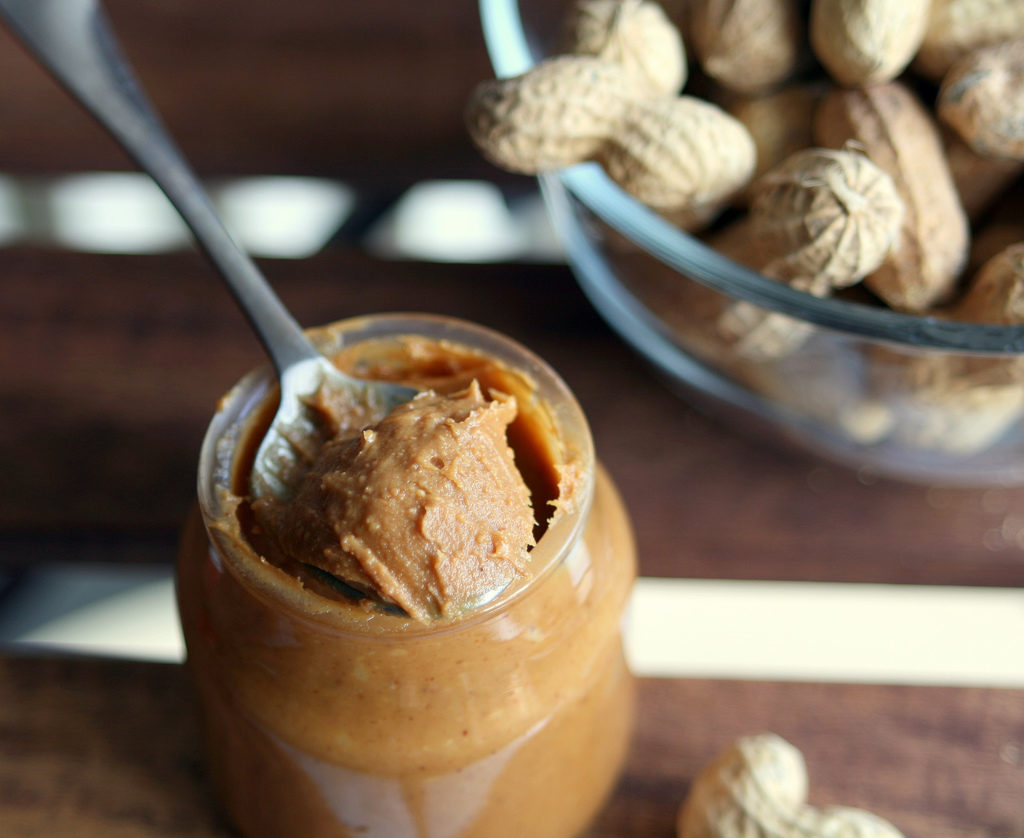
 José García is a second-year Fiction student at the Creative Writing MFA program at The New School. Born and raised in Guatemala City, where he has worked as a cultural journalist for over eight years. He mostly writes about social issues, family, racism, and migration. He is currently working on a short-story collection that spans the last 70 years of Guatemala, alongside his family’s history.
José García is a second-year Fiction student at the Creative Writing MFA program at The New School. Born and raised in Guatemala City, where he has worked as a cultural journalist for over eight years. He mostly writes about social issues, family, racism, and migration. He is currently working on a short-story collection that spans the last 70 years of Guatemala, alongside his family’s history. 
